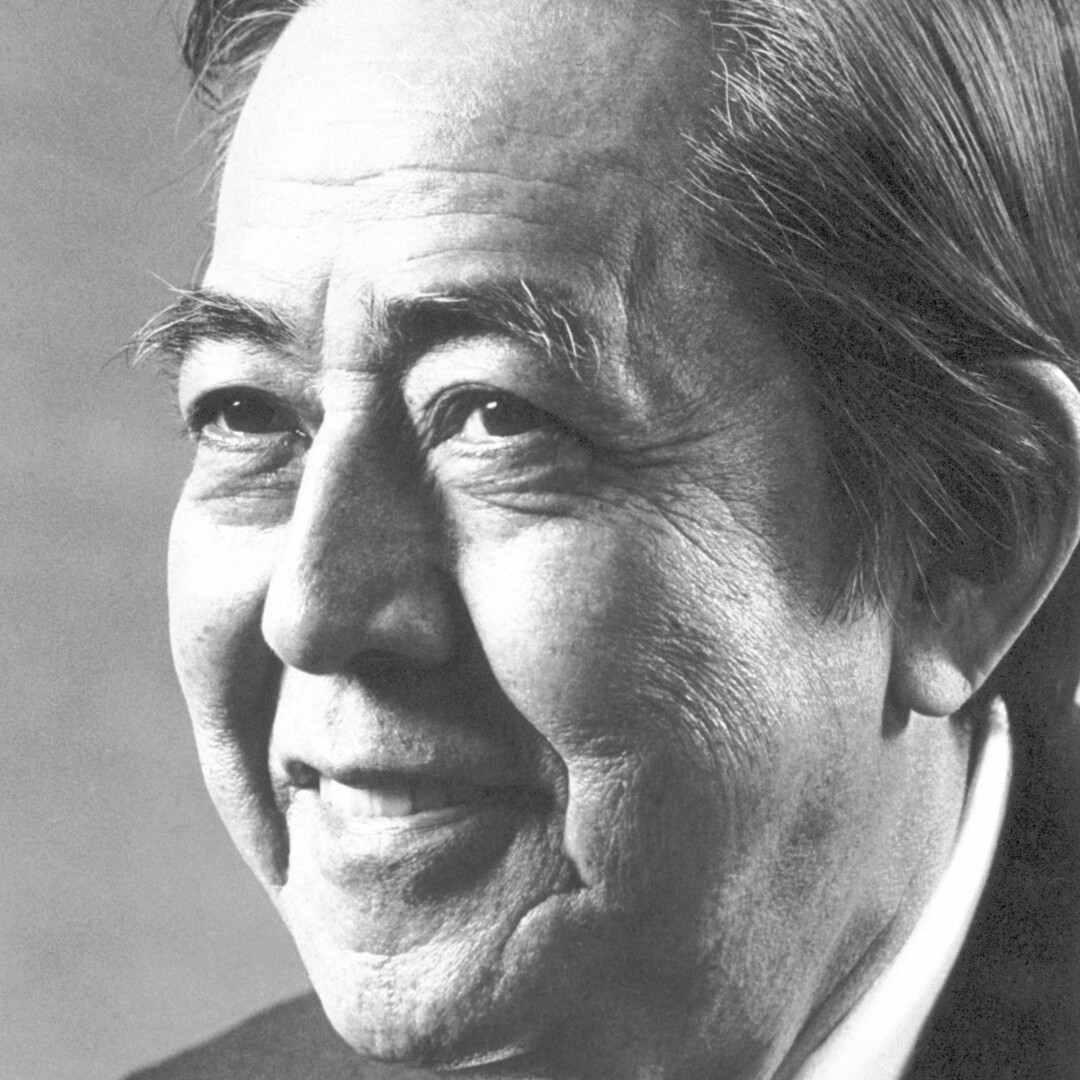Eisaku Satō
Speed read
Eisaku Satō was awarded the Nobel Peace Prize for his contribution to reconciliation in Southeast Asia and for signing the Nuclear Non-Proliferation Treaty on behalf of Japan. He shared the prize with Seán McBride.

Full name: Eisaku Satō
Born: 27 March 1901, Tabuse, Japan
Died: 3 June 1975, Tokyo, Japan
Date awarded: 9 October 1974
Symbol of Japan’s desire for peace
The Norwegian Nobel Committee awarded the Nobel Peace Prize to Satō on the grounds that he represented the Japanese people’s desire for peace. Particularly important in this context was his signing of the nuclear non-proliferation treaty of 1970. Satō was born into a family of samurai descent. During WWII, he worked for the Ministry of Railways. After the war, he built a political career despite accusations of corruption. He headed the 1964 Summer Olympic Games in Tokyo, before becoming prime minister the same year. Satō supported US military involvement in Vietnam while leading a campaign to convince the USA to return Okinawa Island to Japan. The USA returned the island in 1972, but retained control over its military bases. The Japanese left wing accused Satō of pandering to US interests.
"During his tenure in government, Japan signed the Nuclear Non-Proliferation Treaty. This is of singular importance at a time when there is growing risk that more nations will acquire their own nuclear weapons."
The Norwegian Nobel Committee, Announcement, 1974.
With Japan for peace
Satō believed that trade and constructive economic relations between neighbouring countries would promote peace. He signed a friendship agreement with South Korea in an effort to overcome that country’s distrust of its former coloniser. In his Nobel Prize lecture, Satō pointed out that Japan was the only country to experience nuclear war. He promised that Japan would neither produce, introduce nor install nuclear weapons. He felt that the Japanese were unjustly feared by their neighbours and declared that Japan wished to contribute to the peaceful utilisation of nuclear power for the benefit of humankind.
"I am convinced that our people, by dint of their ability and efforts, are intrinsically capable of making a great contribution to world civilization."
Eisaku Sato, Nobel Prize lecture, 11 December 1974
A controversial selection
News of Satō’s peace prize was not enthusiastically received in Japan. Some viewed it with disbelief, derision and anger because, as a politician, Satō had been accused of corruption and abuse of power. Others protested against the award because Satō was believed to have given the USA his unconditional support during the Vietnam War. Nor was he considered an obvious laureate in Norway and the rest of the world. The Washington Post claimed that the Norwegian Nobel Committee had been duped by a Japanese campaign, and several Norwegian newspapers questioned the committee’s judgment.
"Welcome as it was that the committee was finally extending recognition to the continent of Asia, its choice of Sato has not generally been regarded very highly."
Irwin Abrams in The Nobel Peace Prize and the Laureates, page 226, Science History Publications/USA 2002.
| Samurai Japanese warrior class. Originally tax collectors and warriors in the service of the nobility. |
Learn more
Eisaku Satō was born on March 27, 1901 in Tabuse, Yamaguchi Prefecture, Japan. In 1921, completing the course of senior high school, he entered Tokyo Imperial University (now Tokyo University) and majored in German jurisprudence ...
Disclaimer: Every effort has been made by the publisher to credit organisations and individuals with regard to the supply of photographs. Please notify the publishers regarding corrections.
Nobel Prizes and laureates
Six prizes were awarded for achievements that have conferred the greatest benefit to humankind. The 12 laureates' work and discoveries range from proteins' structures and machine learning to fighting for a world free of nuclear weapons.
See them all presented here.
